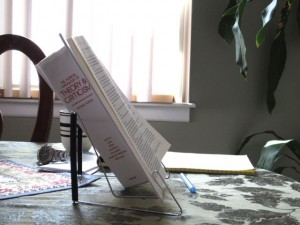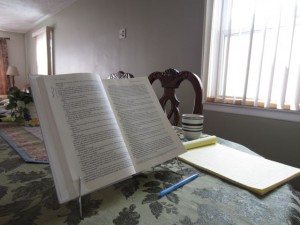 Listen to this text
Listen to this textStatement of Purpose essays are incredibly difficult to write. This past April, I began the application process anew for my PhD. Of course among the items required was a statement of purpose. Worse, I read it’s often considered the most important component of the application. The doctoral degree emphasizes specialization, focus and (gulp) “purpose.” Add to that, if you’re applying to a program where “writing” is central to success (English for instance) a Statement of Purpose holds evermore weight.
But after tips from friends, professors, and after studying several samples, I discovered advice to help craft a decent Statement of Purpose.
The following are 10 tips for anyone needing to write a Statement of Purpose for graduate school.
- Be humble. Don’t be a know-it-all
who writes-out advice in lists of ten simple and fairly obvious statements.
- Leave the lofty goals and ambitions to Miss America pageants: Be real and be yourself. The world will not be a better place if you’re accepted to graduate school. True, you are special and unique; however, there are billions of people who are also special and unique. So, act accordingly after weighing in that proportion. A “real” person is much more refreshing and interesting then someone effusively optimistic/naive.
- Your opening sentence and/or opening paragraph are the most important parts. Spend time with them. Don’t make them generic and don’t take over-the-top risks to stand out; like opening with a haiku or some unnecessarily provocative statement.
- Stand out with specificity.
- Avoid all and every sort of cliche.
- Demonstrate focus and drive indirectly through illustration. Don’t explicitly say something about yourself that cannot be corroborated.
- Keep a common thread running through the essay.
- While you may not know exactly what you want to focus on in graduate school, it helps to highlight a focus area. There must be at least one thing you’re interested in. Find out what that is and talk about it. Allow your own natural interest to color your enthusiasm (don’t feign excitement when it’s not there).
- Have different people read your essay to offer their feedback. Think about using custom assignment help.
- Re-read the first paragraph of your essay and honestly ask yourself “If I were a random stranger, would I want to read on?” If not, don’t feel afraid to scrap that entire paragraph. It’s not about length, it’s about quality of content. Sentences should be painfully crafted, revisited, rewritten — polished to death as it were. If your statement of purpose doesn’t take you over a week to write, or if it doesn’t look drastically different than the first rough draft, it’s probably not ready for submission.
Explore yourself through the essay. You may come to discover that you have a clearer idea of yourself and your own purpose for pursuing graduate work by the very act of writing about it. In some respect, it can be an exercise for yourself.
Okay now, here’s a test: look at the paragraph you just read right before this. If any part of your essay reads like that, delete it! While it contains a modicum of truth, it’s wrapped in corny, lofty, non-specific, language that reads a bit like pablum — which has no place in your essay!
A Sample Statement of Purpose Essay








